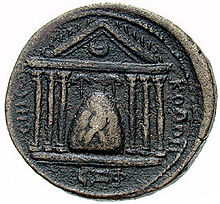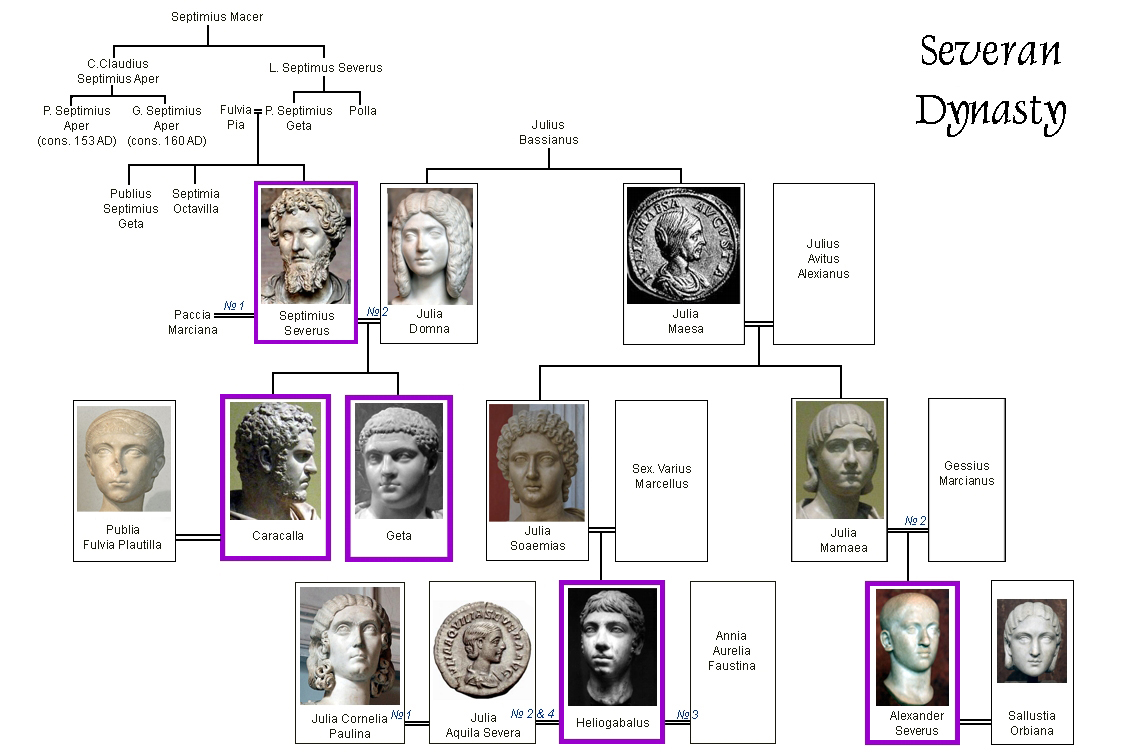Julius Bassianus

Julius Bassianus (born in the second half of the 2nd century, died 217) was an
Royal family of Emesa (modern Homs),[6] which was a part of the Arab aristocracy in this client kingdom of the Roman Empire. The beginning of his priesthood is unknown, but by 187 he was a high priest at Emesa. Bassianus was a son of a Julius and his paternal uncle was Julius Agrippa,[7] who served as a Primipilaris (a former leading Centurion).[8]
Future emperor Lucius
Alexander Severus and eventually became emperor himself. Julius Bassianus is a possible descendant of Gaius Julius Alexion
.
Severan dynasty family tree
See also
- Emesan Dynasty
- Julia Domna
- Elagabalus (deity)
References
- OCLC 9532710.
- ^ Ball, Rome in the East: The Transformation of an Empire, Routledge, p. 37
- ^ English-Arabic dictionary translation for "God" with transliteration of the Arabic equivalent: "elah": https://en.bab.la/dictionary/english-arabic/god
- ^ English-Arabic dictionary translation for "mountain" with transliteration of the Arabic equivalent: "gabal": https://en.bab.la/dictionary/english-arabic/mountain
- ^ Lenormant, Francois (1881). "Sol Elagabalus". Revue de l'Histoire des Religions. 3: 310.
- ^ Birley, Septimius Severus: The African Emperor, p. 217, 223-4
- ^ "Birley, pp. 223–4"
- ^ Levick, Julia Domna: Syrian Empress, p. 18
Sources
- Birley, A.R. (2002). Septimius Severus: The African Emperor. Routledge.
- Levick, B. (2007). Julia Domna: Syrian Empress. Routledge.
External links
- Cleopatra Selene of Mauretania, Internet Archive
- https://www.livius.org/jo-jz/julia/julia_maesa.html Archived 22 November 2014 at the Wayback Machine
- http://www.roman-emperors.org/sevjulia.htm
- https://www.livius.org/ei-er/emperors/emperors03.html Archived 3 December 2014 at the Wayback Machine
- http://www.roman-emperors.org/sepsev.htm

